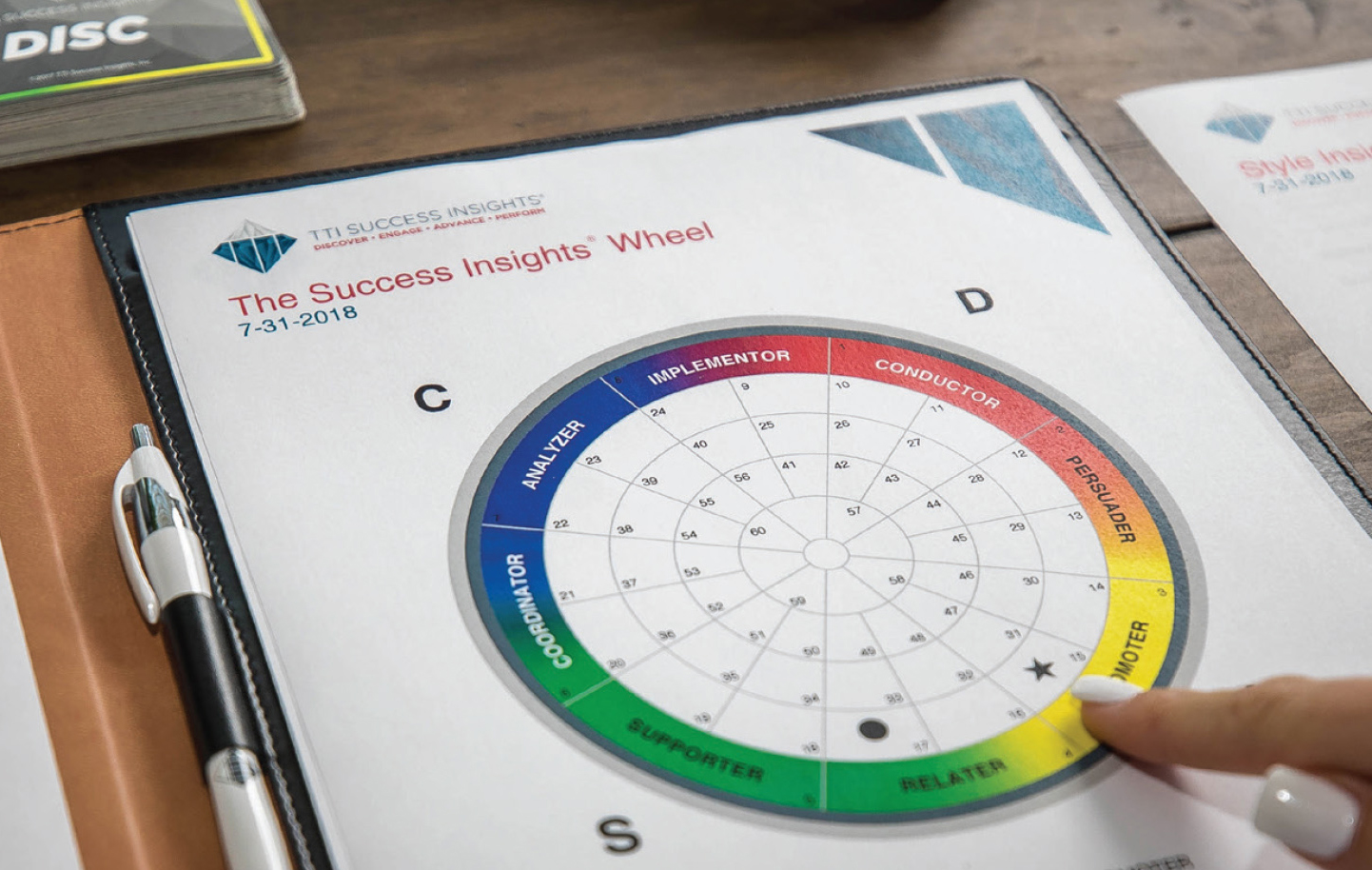TABLE OF CONTENTS
“A good mentor hopes you will move on. A great mentor knows you will.”
The same holds true for managers. A manager’s role should be to nurture their team and sharpen the skills of each individual so there is always someone ready for advancement. When new opportunities arise, a replacement can step in seamlessly, allowing that manager time to focus on excelling at the next level instead of having to stay stuck between positions with no extra compensation.
It’s key for managers to look outwards and promote upward mobility within their teams: developing current employees into future leaders! Managers should foster an environment of growth and development, or else they will find themselves stuck in a less-than-beneficial situation – doing their old job without the extra pay while trying to focus on new responsibilities. Your career will likely be stuck. If you are a business owner, your business growth will almost assuredly get stuck.
The qualities that make a successful manager can vary depending on the organization, team, and situation, but some common traits include strong communication and interpersonal skills, emotional intelligence, decision-making ability, strategic thinking, and a willingness to learn and improve.
Now back to why it is so important to develop your employees. I’ve done another podcast on why it is so important. Today I will share my ideas and experiences in developing your team. What would happen to your team or company if something happened to you tomorrow? Do you have a natural successor?

The vast majority don’t.
I ask this question early in my coaching engagements, and we will generally use this as a foundational mindset for many of our ongoing sessions.By training and equipping employees for future roles within the company, managers create opportunities for upward mobility throughout all levels of staff, allowing them (and others) to make great strides toward success. It is a force multilayer that is rarely utilized.
In today’s highly competitive business world, employees are one of the most valuable assets of any organization. Their knowledge, skills, and experience are the key to achieving success in any industry. Taking the time to train employees and prepare them for a promotion demonstrates true greatness as a manager. That’s just not my opinion. John Maxwell and many other leadership thought leaders share that sentiment.
Even if your long-term advancement might not be guaranteed, investing in employee development will create an atmosphere where everyone can grow together, ready to move up within their company or organization when opportunities arise. Not only is this better for morale, but also allows you more freedom to focus on mastering whatever new role may come next without worrying about having done enough groundwork beforehand!
However, many managers overlook the importance of employee development, which can significantly impact their organization’s growth and success. This Blog will discuss how managers can encourage employee development and how it can benefit their organization.
What is employee development?
Employee development is the process of improving an employee’s skills, knowledge, and abilities through training, education, coaching, and mentoring. It helps employees to enhance their potential and become more effective in their roles. Employee development is an ongoing process that requires continuous learning and growth. It is a mutually beneficial process that benefits both the employee and the organization.
Why is employee development important?
There are several reasons why managers should encourage employee development. Let’s take a closer look at some of the key reasons:
Increased employee satisfaction
When employees feel that they are being invested in and their development is a priority, they are more likely to feel satisfied and motivated in their job. This can lead to increased productivity, better job performance, and a more positive work environment. Employees who feel that their development is important to the organization are more likely to be engaged and committed to their work.
Improved employee retention
Investing in employee development can also lead to improved employee retention. When employees feel that they are being given opportunities to learn and grow, they are more likely to stay with the organization. On the other hand, when employees feel they are not being invested in, they may start looking for opportunities elsewhere. High employee turnover can be costly for organizations in terms of time and money and can lead to a loss of valuable knowledge and experience.
Increased organizational performance
Encouraging employee development can also lead to increased organizational performance. When employees are well-trained and skilled, they are better equipped to handle their job responsibilities and contribute to the organization’s overall success. Improved employee performance can lead to increased productivity, better customer service, and higher-quality work.
Access to new ideas and perspectives
Employee development can also bring new ideas and perspectives to an organization. When employees are given the opportunity to learn and grow, they are more likely to bring new ideas and perspectives to their work. This can lead to innovation, creativity, and a more dynamic work environment. Encouraging employee development can help organizations stay competitive and stay ahead of industry trends.
There are several ways that managers can train and delegate tasks and responsibilities to their direct reports for employee development. Here are some ideas:
Start with a clear understanding of the employee’s strengths and areas for development. This can be done through regular performance reviews and conversations with the employee. Once you understand their strengths and areas for improvement, you can delegate tasks and responsibilities to help them build on their strengths and develop new skills.

A DISC report is a behavioral assessment tool that provides insights into an individual’s personality and behavior. The report is based on the DISC model, which categorizes individuals into four behavioral styles: Dominance, Influence, Steadiness, and Conscientiousness. The report typically includes a personalized analysis of an individual’s strengths, weaknesses, communication style, work preferences, and strategies for improving interpersonal communication and working effectively with others. DISC reports are commonly used in leadership development, team building, and career development.
Provide on-the-job training and coaching. This involves giving employees the opportunity to learn new skills by working on new projects or tasks while also providing guidance and support as needed. By providing on-the-job training and coaching, managers can help employees to develop new skills and become more effective in their roles.
On What?
Managers can delegate a wide range of tasks and duties to their employees to support employee development, improve efficiency, and promote collaboration. Here are some specific examples:
Project management: Delegating project management responsibilities to employees can help them to develop their leadership and organizational skills, as well as gain experience in planning, executing, and monitoring projects.
Team management: Delegating team management responsibilities to employees can help them to develop their leadership, communication, and interpersonal skills, as well as gain experience in managing team dynamics and conflict resolution.
Training and coaching: Delegating training and coaching responsibilities to employees can help them develop their teaching and mentoring skills and gain experience in developing and delivering training materials. Onboarding new employees as the ambassador for your company. Mentoring other employees. Moving them to interim leadership positions, such as being a lead for 2 to four people in their department.
Client relations: Delegating client relations responsibilities to employees can help them develop their customer service and communication skills and gain experience building and maintaining client relationships.
Administrative tasks: Delegating administrative tasks, such as scheduling, data entry, and filing, to employees can help to improve efficiency and free up time for managers to focus on more strategic tasks.
Budget management: Delegating budget management responsibilities to employees can help them develop their financial and analytical skills and gain experience tracking expenses and making financial decisions.
Research and analysis: Delegating research and analysis responsibilities to employees can help them develop their critical thinking and problem-solving skills and gain experience in conducting research and analyzing data.
Technical skills: Delegating technical tasks, such as programming, web development, or graphic design, to employees can help them to develop their technical skills, as well as gain experience in using specific tools and software.
Overall, managers can delegate a wide range of tasks and duties to their employees to support their development and improve efficiency.

Delegating Tasks and Responsibilities
Delegating tasks and responsibilities can also promote collaboration and teamwork and provide opportunities for employees to learn new skills and gain valuable experience. It’s important for managers to delegate tasks thoughtfully and provide support and guidance as needed to ensure successful outcomes.
Assign challenging projects and responsibilities. Assigning challenging projects and responsibilities can be an effective way to encourage employee development. By providing employees with opportunities to work on projects outside their comfort zone, managers can help them build new skills and gain new experiences.
Provide regular feedback and support. Regular feedback and support are essential for employee development. By providing feedback on their performance and supporting them as they learn and grow, managers can help employees to understand their strengths and areas for improvement and provide guidance on how to improve.
Encourage collaboration and teamwork. Encouraging collaboration and teamwork can be an effective way to encourage employee development. Employees can learn new skills, share knowledge and experience, and build stronger relationships with their colleagues by working with others.
Offer training and development programs. Offering formal training and development programs can be an effective way to support employee development. This can include both in-person and online training programs, as well as coaching and mentoring programs.
Provide opportunities for job shadowing and cross-functional training. By providing employees with opportunities to shadow other employees or work in different areas of the organization, managers can help them to gain new skills and perspectives. This can also help to build a stronger and more cohesive team.
Delegate tasks and responsibilities gradually. Delegating tasks and responsibilities gradually can be an effective way to support employee development. By gradually increasing the level of responsibility that an employee has, managers, can help them to build their skills and confidence over time.
Recognize and reward employee development. Recognizing and rewarding employees who have made progress in their development can effectively reinforce the importance of employee development. This can include promotions, bonuses, or other forms of recognition.
Overall, there are many ways that managers can train and delegate tasks and responsibilities to their direct reports for employee development. By taking a strategic approach to employee development, managers can build a strong and motivated workforce committed to the organization’s success.

What are Your Roles and Responsibilities?
First, get out of the “Tactical” mindset and into a “Strategic” mindset. Yes, you have a lot to do and many things coming at you every day. I get it. I’ve been there and know the feeling. Developing your employees requires a shift in priorities.
You have to MAKE time to set aside development time. That is playing an infinite game for your business and career. The long-term result and payoff are that you will find yourself less busy in time.
Why? Your people have become less dependent on you and have multiple resources outside of only you. It’s subtle but real. I know because this is something I made a big part of my executive role. In turn, I worked far less than my peers and promoted dozens of managers and executives into my fast-growing employer.
Schedule Time on Your Calendar to Provide Coaching and Mentoring. This won’t happen unless you do. Coaching and mentoring can also be effective ways to encourage employee development. By providing one-on-one coaching and mentoring, managers can help employees to identify their strengths and areas for improvement and provide guidance and support. Coaching and mentoring can help employees grow, develop their skills, and become more effective in their roles. As part of coaching and mentoring, you also have to include the flowing elements.
Set development goals. Setting development goals can also be an effective way to encourage employee development. By setting goals that align with the organization’s objectives, managers can help employees to stay focused and motivated. Setting development goals can also help employees to measure their progress and track their achievements. Make them SMART! Specific, Measurable, Achievable, the Person Responsible, and Timebound.
Encourage feedback and communication. Encouraging feedback and communication can also be effective ways to encourage employee development. By providing regular feedback and communication, managers can help employees understand their strengths and areas for improvement and provide guidance on improving. Remember, no news is good news. Don’t set them or you up for failure by not being courageous and providing progress feedback regularly. In the absence of developmental feedback, the perception will form that they must be doing great. Feedback and communication can also help build trust and respect between employees and their managers, leading to a more positive work environment.
Recognize and reward employee development. Recognizing and rewarding employee development can also be an effective way to encourage employees to invest in their development. By recognizing and rewarding employees who have made progress in their development, managers can help reinforce employee development’s importance and create a culture of learning and growth.
Conclusion
Encouraging employee development is essential for the growth and success of any organization. By investing in employee development, managers can help employees to improve their skills, knowledge, and abilities and become more effective in their roles. Employee development can lead to increased employee satisfaction, retention, organizational performance, and access to new ideas and perspectives.





